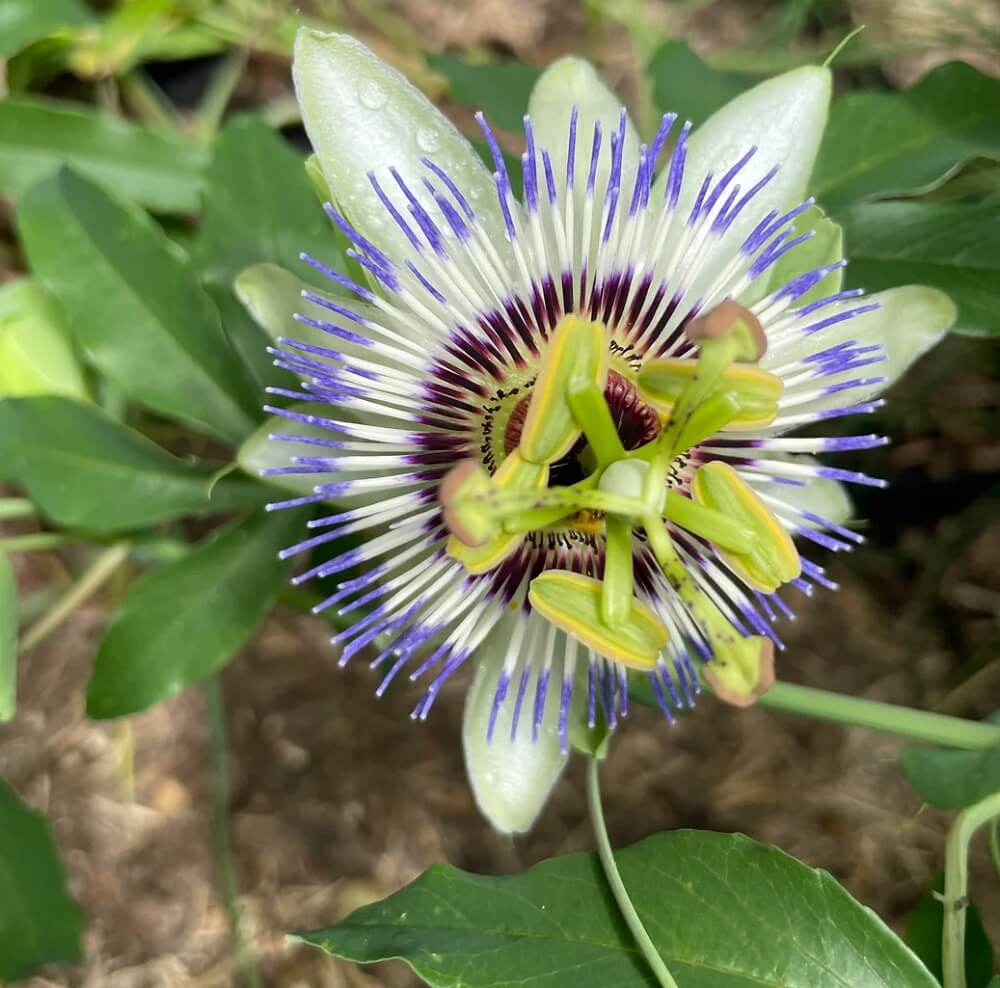A Virginia gardener asked the r/NativePlantGardening subreddit for help identifying a mystery plant growing in their flower bed. Unfortunately, while the plant is in the same family as their intended purchase, the seeds the original poster received in the mail were not what they had ordered.
In their post, they explained that they had tried buying Passiflora incarnata seeds, otherwise known as maypop or purple passionflower. Instead, the OP was surprised to find Passiflora caerulea — a blue or common passionflower — in the package. They posted several photos of the striking blue and white flower so fellow Redditors could verify its identity.


"Sprouted these indoors and planted them in a garden bed and by my mailbox," the OP explained. "Today I saw the first bloom and it looks whiter than I expected. Did I get sent mislabeled seeds for an invasive, bland-tasting variety from South America?"
While the exotic-looking plant is certainly beautiful, it's listed as an invasive species, according to the CABI Digital Library. CABI explained that most varieties are climbing vines that can quickly become a nuisance in native forests, in shrublands, and along riverbanks. Because it is so aggressive and grows so quickly, it can also overtake fences and walls in residential areas if it's not managed properly, as Gardeners' World detailed.
Blue passionflower is known for attracting bees and other beneficial insects, but it can harm cats, dogs, and humans if ingested. Since it's invasive, it will outcompete native species for essential resources such as sunlight, water, and nutrients and disrupt the local ecosystem.
If invasive species aren't tamed early, they can be a huge headache to remove because they have deep root systems and grow aggressively. Some homeowners have hired goats or used specialized tools to tackle invasive plant overgrowth in their yards, but the best way to prevent their spread is to identify them quickly, as the OP did.
Swapping out harmful invasive species with native plants saves you time and money on lawn maintenance and reduces your water bills since they're adapted to local climate conditions. Plus, they attract helpful pollinators to your yard, which benefits humans since we rely on them for our food supply. If you're not ready to go au naturel with your whole yard, you can easily plant low-maintenance clover or buffalo grass in a small section and reap the rewards a less traditional lawn offers.
One user confirmed the OP's suspicions about the mislabeled plant: "Yup. Definitely not incarnata. That's a bummer but it is still a very pretty and nice smelling flower!"
"Yeah I'm sorry," another commented. "Wish we could give you some of our incarnata. We have a field of it."
🗣️ What's the hardest thing about taking care of your yard?
🔘 Mowing the lawn 🏡
🔘 Controlling weeds 🌿
🔘 Keeping pests at bay 🐿️
🔘 I don't have a yard 🤷
🗳️ Click your choice to see results and speak your mind
Join our free newsletter for easy tips to save more and waste less, and don't miss this cool list of easy ways to help yourself while helping the planet.









